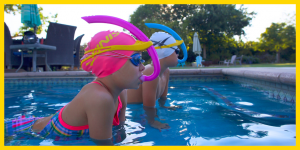7 reasons why hiring a swimmer will enhance your company
Hannah Hecht, SwimSwam
December 28, 2018
At the end of the road, most swimmers aren’t going to be able to make money by competing professionally. After college, we have to shift gears from the 5:00 a.m. workouts and weekends spent out of town at swim meets, and we are thrown out of the water and into the workforce. However, just because so-called “swammers” may have hung up their goggles, doesn’t mean that those years of hard work were wasted. Former swimmers have spent years developing skills which can be integral to their new lives in the workforce.
1. SWIMMERS ARE DETAIL-ORIENTED.
It takes a certain type of person to spend hundreds of thousands of yards perfecting her stroke to the exact underwater catch that will produce maximum speed or to practice splitting out a 500, making sure to stay consistent to the tenth of a second. Swimmers know that success comes from looking over all of the elements of a project with a microscope in order to make sure that even the minutest details are perfect. That kind of dedication to the particulars can give us the competitive edge in the office as well as in the pool.
2. SWIMMERS CAN MANAGE THEIR TIME EFFECTIVELY.
In order to be a student athlete in any sport, you have to be able to effectively balance your work and school, but swimming takes time management to another level. After handling year-round two-a-days on top of taking sixteen credit hours, participating in on-campus activities, traveling to meets, and striving for that Academic All-American title, working a nine-to-five job may seem like a piece of cake.
3. SWIMMERS CAN SET CHALLENGING, YET REALISTIC, GOALS.
Having honed our craft ever since we were little kids perfecting our 25 free, we know what a good goal looks like. Swimmers understand that the most effective goals are ambitious, but reachable, and once we have a goal, we work tirelessly to achieve it. Importantly, we also know how to regroup and change our strategy if our work is not producing effective results.
4. SWIMMERS KNOW HOW TO BE GOOD TEAMMATES.
Almost every job that you will get after college will require you to work as a part of a team with other people. Luckily for you, years of swimming has taught you that while you can’t choose your teammates (or your coworkers), you can choose how you treat them. Swimmers know that everyone performs best, and the team places the highest, when everyone feels like their teammates are rooting for their success. We know how to elicit high achievements, whether it is through a compliment, a cheer, or a pat on the back, from both ourselves and our teammates.
5. SWIMMERS KNOW HOW TO TAKE A TEDIOUS TASK AND MAKE IT INTERESTING.
After spending hours every day staring at a black line on the bottom of the pool and swimming back and forth, most tasks in the adult world may seem a lot more interesting. And even if your employer assigns you to something monotonous, as a former swimmer, you will have already developed a lot of tricks to keep yourself focused. Singing in your head, making the job into a game, or finding small ways to creatively change how you do things can help make tasks go by faster, in swimming and in life.
6. SWIMMERS KNOW HOW TO PERFORM UNDER PRESSURE.
If you have competed in finals at the big conference or national meet, you know how to execute tasks when the stakes are high. In fact, swimmers know how to take nervous energy and harness it to enhance their performance. Years and years of performing in front of huge crowds is very good practice for any presentations or public speaking that may come your way.
7. SWIMMERS ARE INTRINSICALLY MOTIVATED.
The most important thing that swimmers learn from their years of training is how to stay motivated at both the fun times and the hard times. Swimmers know how to work through a plateau or through that dreaded January month when it seems that taper will never come. Even in the middle of the season when the rewards are far off and our times are looking slow, we know how to find happiness from hitting that turn just right or nailing the relay exchange. Although the records and the medals are nice, our real motivation comes from making ourselves better. We know how to work at what may seem to be a thankless task in order to improve ourselves and benefit the team as a whole.
Recent Articles
Dylan Carter
Chelsea Hodges
Lorenzo Zazzeri

Introducing the Stability Snorkel Jr
Share on Social Media


